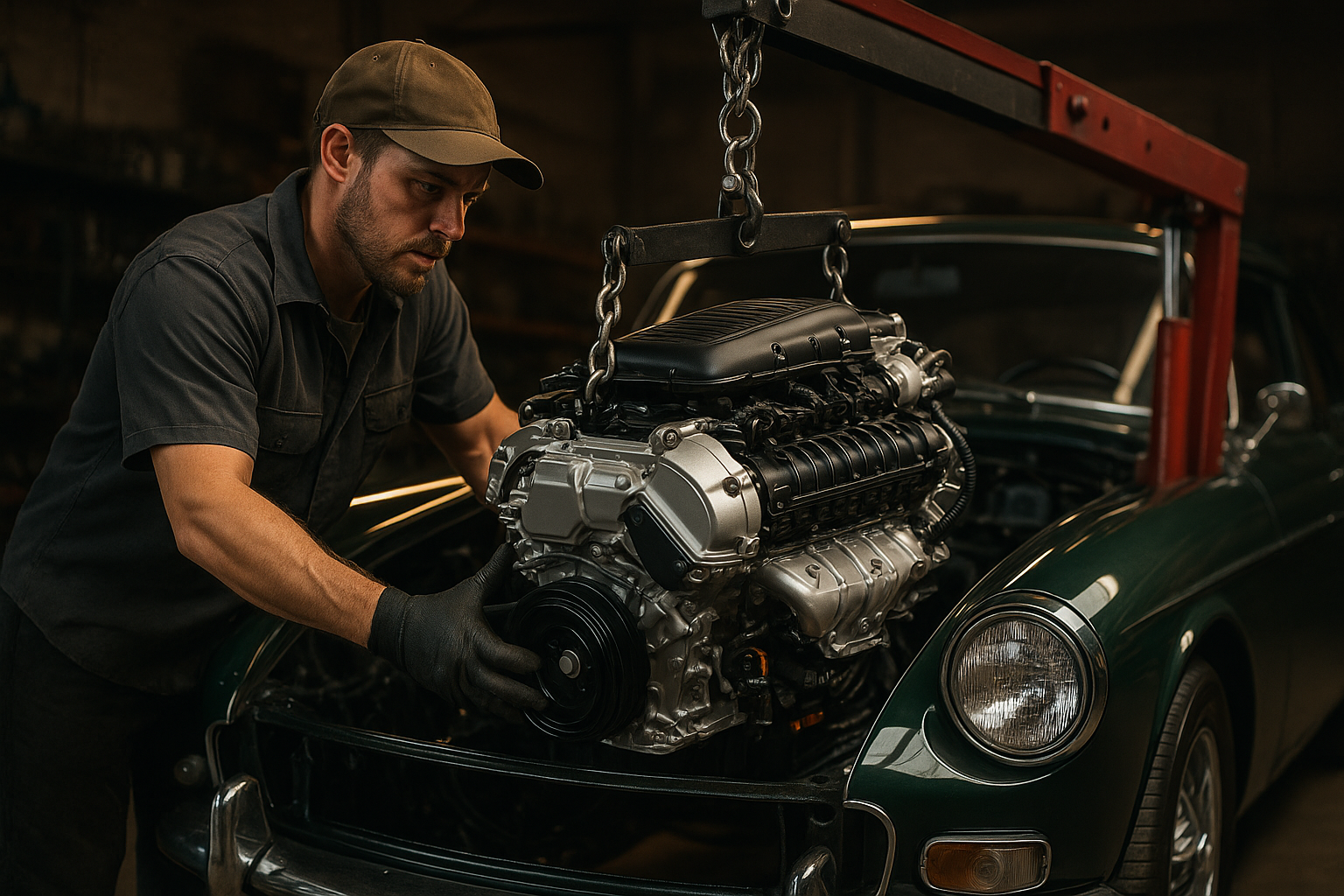Essential Guide to Car Body Shops: Services, Selection, and Future Trends
Car body shops play a crucial role in the automotive industry by providing repair and enhancement services for vehicle exteriors. Whether you’ve been in an accident, need a paint touch-up, or want to restore a classic car, car body shops are essential for maintaining your vehicle's appearance and structural integrity. This article explores what car body shops do, the services they offer, how to choose the right one, and the future trends in the industry.

What services do car body shops typically offer?
Car body shops provide a wide array of services to address various vehicle exterior issues. The most common offerings include:
-
Collision repair: After an accident, technicians work to restore damaged vehicles to their pre-accident condition, repairing or replacing damaged panels, frames, and other components.
-
Paint services: From touch-ups to complete repaints, body shops can match and apply paint to restore a vehicle’s appearance or give it a whole new look.
-
Dent removal: Using specialized tools and techniques, skilled technicians can remove dents and dings without damaging the existing paint.
-
Rust repair: Body shops can address rust issues by removing affected areas, treating the metal, and repainting to prevent further corrosion.
-
Glass replacement: Many body shops offer windshield and window replacement services to address cracks or shattered glass.
-
Custom work: Some shops specialize in modifications, such as installing body kits, custom paint jobs, or other aesthetic enhancements.
How do I choose the right car body shop for my needs?
Selecting the right car body shop is crucial to ensure quality repairs and a positive experience. Consider the following factors when making your decision:
-
Reputation: Research online reviews, ask for recommendations from friends and family, and check with local consumer protection agencies for any complaints.
-
Certifications: Look for shops with industry certifications, such as I-CAR (Inter-Industry Conference on Auto Collision Repair) or ASE (Automotive Service Excellence) credentials.
-
Insurance relationships: If you’re dealing with an insurance claim, check if the shop works with your insurance provider to streamline the process.
-
Equipment and technology: Modern shops should have up-to-date equipment and diagnostic tools to handle repairs on newer vehicles.
-
Warranty: Inquire about warranties on parts and labor to protect your investment in case of issues after the repair.
-
Customer service: Visit the shop in person to gauge their professionalism, cleanliness, and willingness to answer your questions.
What are the latest technologies used in car body repair?
The car body repair industry is constantly evolving, with new technologies improving efficiency, accuracy, and quality of repairs. Some cutting-edge advancements include:
-
3D measuring systems: These tools use lasers or cameras to create precise digital models of damaged vehicles, ensuring accurate repairs.
-
Computer-aided mixing systems: Advanced paint mixing technology helps achieve perfect color matches for seamless repairs.
-
Aluminum repair equipment: Specialized tools and techniques for working with aluminum body panels, which are becoming more common in modern vehicles.
-
Paintless dent repair (PDR): This technique uses specialized tools to remove dents without affecting the original paint, often resulting in quicker and more cost-effective repairs.
-
Virtual reality training: Some shops use VR systems to train technicians in complex repair procedures without risking damage to actual vehicles.
How can I maintain my vehicle’s appearance between body shop visits?
Regular maintenance can help preserve your vehicle’s appearance and potentially reduce the need for extensive body shop repairs:
-
Wash your car regularly to remove dirt, salt, and other contaminants that can damage the paint or cause rust.
-
Apply a quality wax or sealant to protect the paint from UV rays and environmental damage.
-
Park in covered areas when possible to minimize exposure to sun, rain, and other elements.
-
Address small chips or scratches promptly to prevent rust from developing.
-
Consider paint protection film for high-impact areas like the front bumper and hood.
What future trends are shaping the car body repair industry?
The automotive industry’s rapid evolution is driving significant changes in body repair technologies and practices:
-
Electric and hybrid vehicle repair: As these vehicles become more prevalent, body shops are adapting their techniques and safety protocols to work with high-voltage systems.
-
Advanced driver assistance systems (ADAS): Repairing vehicles with complex sensors and cameras requires specialized knowledge and calibration equipment.
-
3D printing: Some shops are beginning to use 3D printing technology to create custom parts or repair small plastic components.
-
Eco-friendly practices: Many body shops are adopting water-based paints and more environmentally friendly repair processes to reduce their carbon footprint.
-
Mobile estimating and repair services: Some shops now offer on-site estimates or minor repairs for added convenience.
How do car body shop services typically compare in terms of cost and duration?
When considering car body shop services, it’s important to understand that costs and repair times can vary significantly based on the extent of damage, vehicle make and model, and local market conditions. Here’s a general comparison of common services:
| Service | Typical Cost Range | Estimated Duration |
|---|---|---|
| Minor Dent Repair | $50 - $150 | 1-2 hours |
| Paint Touch-Up | $150 - $300 | 2-4 hours |
| Bumper Repair/Replacement | $300 - $1,500 | 1-3 days |
| Major Collision Repair | $1,500 - $6,000+ | 1-2 weeks |
| Complete Vehicle Repaint | $3,000 - $10,000+ | 1-2 weeks |
Prices, rates, or cost estimates mentioned in this article are based on the latest available information but may change over time. Independent research is advised before making financial decisions.
In conclusion, car body shops are essential for maintaining and restoring vehicle appearance and structural integrity. By understanding the services offered, how to choose the right shop, and the latest industry trends, you can make informed decisions about your vehicle’s care and repair. As technology continues to advance, we can expect even more innovative solutions in the world of automotive body repair, ensuring that our vehicles remain safe, functional, and visually appealing for years to come.




